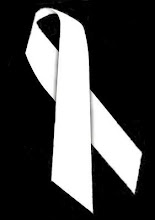RWANDA: Empowering genocide widows
KIGALI, 11 February 2010 (IRIN) - Sixteen years after the Rwandan genocide, many women are struggling to come to terms with the violence they endured.
According to the association of genocide widows NGO, Avega Agahozo, sexual violence was used to humiliate, degrade and abuse women during the 6 April to 16 July 1994 killings. In many cases, the violence was meted out before, during or after the women had witnessed the killing of a relative.
“Some of the women are only coming out now because they are sick,” said Sabine Uwase, the head of advocacy, justice and information for Avega. "We also receive special cases suffering from cancer or with damaged sexual organs.”
Avega has turned into a refuge for some of these women. Founded in 1995 by 58 widows, it now has three branches and 25,000 members. More than 47,400 women are receiving medical treatment through its programmes.
Each day, 20 to 30 women come knocking on its doors. Asked why it took some of the women so long to seek help, Uwase said: “Many of the women were ashamed to come out. We had to counsel them first. Many of them were victims of rape and are traumatized.”
One study carried out by the organization in Rwanda’s 12 provinces found that in a sample of 1,125 widows, about 80 percent showed signs of trauma and 67 percent had HIV. The study was limited by inadequate resources.
Legal aid
Apart from healthcare, Avega provided legal services for widows who wished to testify against those accused of genocide in the traditional gacaca courts.
The 12,103 courts, which were started in 2001 and modelled on Rwanda’s traditional justice mechanisms, are being wound up after handling more than a million cases. At least 800,000 perpetrators have been convicted nationwide.
However, human rights organizations have criticized the gacaca courts, saying they did not provide adequate legal services to suspects, were plagued by unfairness and have been used to settle scores.
Government officials strongly deny the criticism, saying 94 percent of Rwandans believe in the courts. The process, they argue, has promoted reconciliation and reunited communities.
“Previously, the widows were unwilling to testify,” Uwase told IRIN on 8 February. “We have trained 419 trainers of trainers who go back to the villages to teach others how to testify. In Kigali, we have helped testimony in 150 cases. Now, we are also teaching the widows and orphans about land law.”
Avega also built 919 houses for widows and orphans between 2007 and 2008, and tackles gender-based violence. Over the years, it has encouraged the women to engage in income-generating activities, such as basket-weaving. The baskets are sold internationally and help to supplement the US$60 monthly government grant provided by the Assistance Fund for Genocide Survivors.
Genocide widows form a significant percentage of survivors because the genocidaires targeted mainly men and boys. Data compiled by the genocide survivors fund shows that between 250,000 and 500,000 women were raped during the 100 days of violence in which 800,000 to one million Tutsis and moderate Hutus died.
Trauma
While some women were gang-raped, others were violated with sharpened objects, resulting in extensive damage to their reproductive systems.
Up to 20,000 children were born from rape. Across the country, there are 10 times more widows than widowers among the 300,000-400,000 survivors.
Some 100,000 survivors are categorized as vulnerable, including 40,000 who lack shelter. There are also 75,000 orphans.
According to Avega, the widows and orphans who survived the genocide bear the burden of the atrocities committed. Having witnessed or suffered extreme violence, many of them have a very negative attitude towards life.
“Many of the women still find it difficult to talk about their experiences,” a Kigali-based journalist said. “They are haunted by [the genocide].”
Tuesday, 16 February 2010
Rwanda: Empowering Genocide Widows
It's International Tuesday and today we have an article from Rwanda about the NGO Avega Agahozo, which helps women who were sexually assaulted during the genocide. I was in Rwanda in July 2009, conducting research on the human rights situation of children conceived through rape during the genocide. This research included a meeting with Jeanne Mukamusoni of Avega Agahozo, who is also writing about these children and the difficulties that they and their mothers face. Although it is not mentioned in this article, Jeanne told me that there is group counselling for women who have children as a result of rape.
Subscribe to:
Post Comments (Atom)

Congratulations on highlightingn this important issue
ReplyDelete